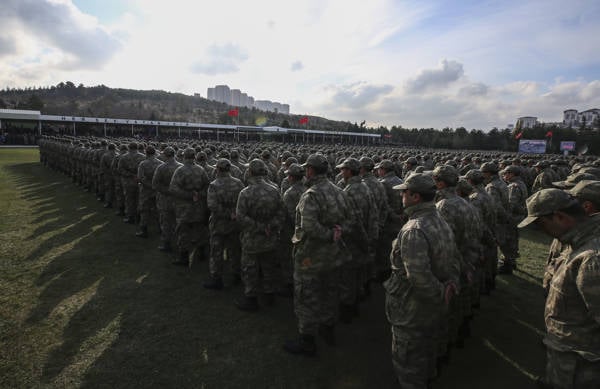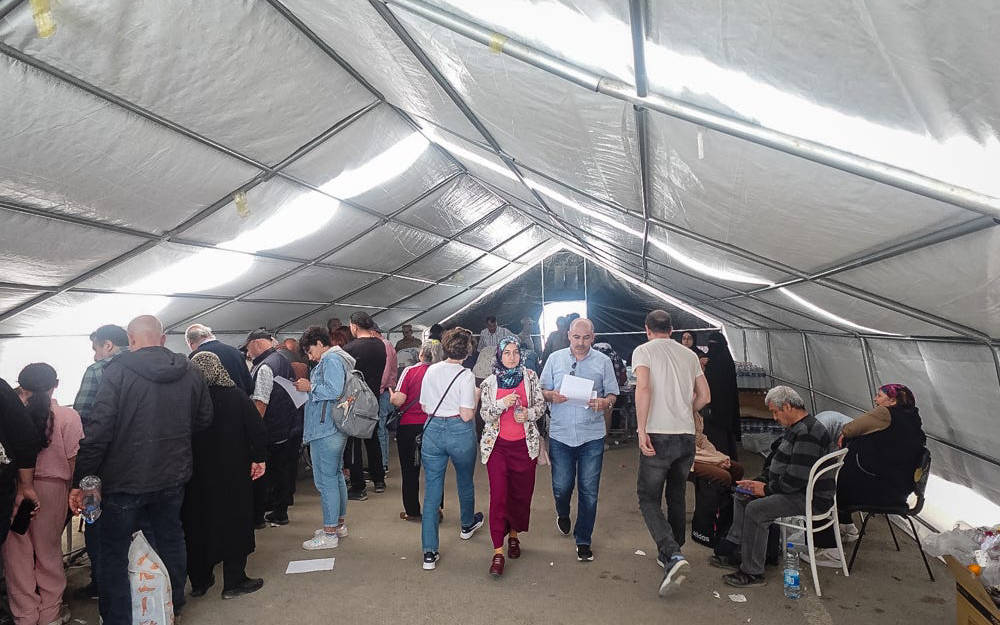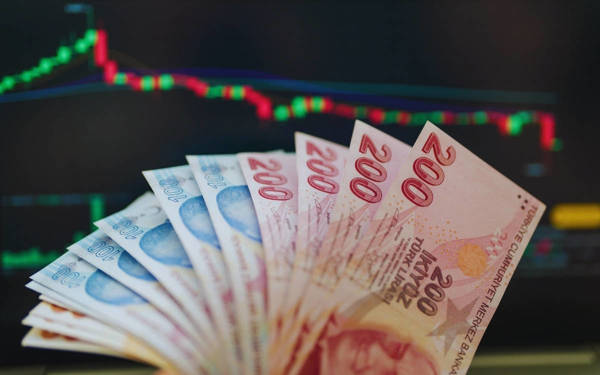Click to read the article in Turkish
The most notable contribution of stock exchanges to economic terminology was the notion of "apetite." Changes in risk appetite are perceived as the most important indicator regarding the course of the economy these days. However, another type of appetite, the appetite for armament, seems to be closely related to the economy.
The climate of fear
Amid news on unemployment, poverty and inflation, the president or the defense minister, if not them, the foreign minister, enumerates the threats against our country every day. When they speak like that, retired generals, colonels or guys with mysterious titles like "strategy expert" evaluate the threats on television programs at night. While different things are said sometimes, everyone generally agrees that our country is surrounded by threats.
Of course, when there are so many threats, the appetite for armament is unavoidably felt. Arms preferences enter our daily lives. How everyone has an opinion on matters like whether we should by F-16s or push our luck one more time for F-35s. We may discuss whether we should have bought Patriots, whether it was wrong to buy S-400s, or the submarines that were said to be domestic and national were in fact German-made.
Armament became reputation
There is a single issue that we don't discuss. Do we have to buy so many weapons? What are we giving up to buy so many weapons? Is it possible to both fill the country with this many weapons and to combat poverty? Asking these questions is a bit like treason. Apparently, there is no saving on armament just as there is no saving on reputation. So much so that the understanding that the more we get armed, the more we have reputation is being established.
However, even though we have been increasing military spending at an unprecedented pace, our reputation does not seem to have increased that much. Of course, there is something exhausting about being a country that always has problems. But increasing military spending is not reducing but increasing the problems. It may be useful to think that our problems arise not from the insufficiency of our armament spending but from the fact that it is extremely high.
The greatest military power in the region
Looking at some figures will be more explanatory. First, we should look at the share of military expenditures in gross domestic product. While the share of military expenditures in gross domestic product was 2.4 percent in Turkey in 2005, it rose to 2.8 percent in 2020. In the countries around us, it decreased from 3 percent to 2 percent in Iran, from 2.7 percent to 1.2 percent in Egypt, from 6.3 percent to 5.6 percent in Israel, from 3.3 percent to 1.8 percent in Georgia, from 2 percent to 1.8 percent in Cyprus, from 2.3 percent to 1.8 percent in Bulgaria in the same period. It remained stable at 2.8 percent in Greece. Other than us, there are only Azerbaijan and Armenia that raised the share of military expenditures.
It should be stressed that the increase in military expenditures is not at a level that could be defined as normal. Turkey's military expenditures has increased by 60 percent denominated in dollar terms at constant prices since 2002. In this period, the most dramatic increase was in 2018. In a year, military expenditures increased by 25 percent denominated in dollar terms.
While military expenditures per capita were 140 dollars in 2002, it reached 245 dollars in 2019. These figures show an increase of over 75 percent.
A comparison with the surrounding countries may give a clue to comprehend the level that military expenditures reached. In 2020, Turkey's military spending was about 18 billion dollars. Iran's military expenditures was 90 percent of this, Greece's was 30 percent, Egypt's was 25 percent, Azerbaijan's was 13 percent, Bulgaria's was 7 percent, Armenia's was 3 percent and Cyprus' and Georgia's were 2 percent each.
In such an environment, while other countries reduce their military expenditures, Turkey increases it in worry. The figures should be taken seriously as they are not of TurkStat but of the Stockholm International Peace Research Institute (SIPRI). Any expenditure that is not justified with tangible and reliable data is nothing but a waste of resources.
Endless expenditures
In recent years, Turkey has wasted its resources so much because of unplanned and arbitrary spending. Possibilities to make up for these losses were eliminated because of contracts binding the future. Now these are discussed and efforts continue to prevent new ones from being implemented. But this issue is not only about highways that are like a cake that does not worth the candle or hospital investments with enormous problems.
It is very common knowledge: every expenditure means giving up another expenditure. The statements that are made so easily like we will buy 40 more planes, we have ordered six submarines, we will buy an air defense battery from them as well should be read as poverty will continue in the coming years, unemployment will not decrease, food prices will increase. If they are not read and discussed like this, statesmen that will attempt to buy aircraft carriers as if they have colonies in oceans that need to be protected will emerge.
Why are there so many enemies?
When the high military expenditures of Turkey are mentioned, it is immediately talked about what a dangerous region the country is in. However, when it is seen that the expenditures are high compared to the countries in the region, the theses about the enemies surrounding the country are put forward. We are armed because the environment is surrounded by enemies; the more we are armed, the more we are surrounded by. Unless it is asked why there are so many enemies, we remain in a self-feeding process.
This question is important especially for the opposition. To make people believe they can govern the country, opposition parties or alliances, before anything else, must offer projects that will end poverty and unemployment. These projects will always need great resources. It will not be possible to find resources for social projects without bringing the outrageous military spending to a sane level. For this reason, it will not be credible to claim to solve social problems without opposing or by remaining silent against policies that increase hostility, military adventures and conquest ambitions. (BD/NÖ/VK)









.jpg)
.jpg)
.jpg)